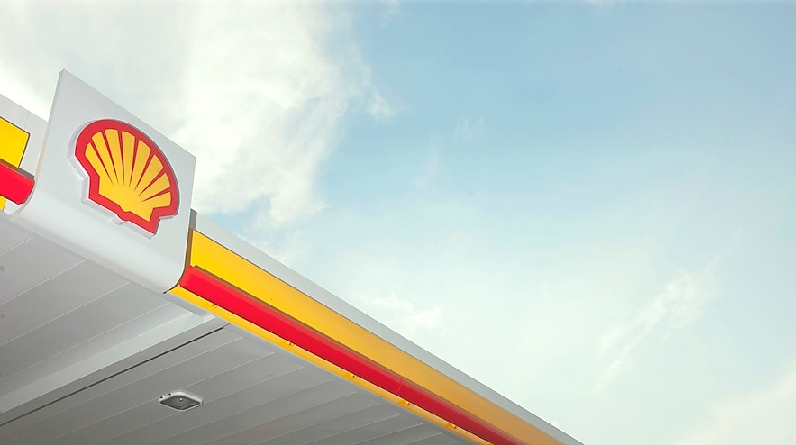The oil company Shell has announced its highest quarterly profits in 115 years

After energy prices skyrocketed last year due to Russia’s invasion of Ukraine, oil and gas giant Shell announced record annual profits. In 2022, profits reached $39.9bn (£32.2bn), more than double the total from the previous year and the highest in the company’s 115-year history. Since the price of oil and gas skyrocketed after the invasion of Ukraine, energy companies have reported record profits.
Businesses are under increased pressure to increase their tax contributions as households struggle to keep up with rising costs. The government is “letting energy firms off the hook,” the opposition parties said, and Shell’s profits were “outrageous.” In addition, they demanded that the April increase in the energy price cap be scrapped.
After Covid lockdowns were lifted, energy prices started to rise, but the events in Ukraine in March of last year caused a dramatic spike. Since the invasion, Brent crude oil prices soared to nearly $128 per barrel before settling at around $83. Similarly, gas prices spiked before declining. It has resulted in record profits for the energy industry but has also contributed to a rise in energy costs for consumers.
To finance its plan to reduce gas and electricity prices, the UK government introduced a windfall tax on firms’ “extraordinary” earnings last year; this tax is known as the Energy Profits Levy. As a result of being able to deduct decommissioning costs and investments in UK projects from UK profits, Shell had previously stated that it did not anticipate paying any UK tax this year.
On Thursday, however, it reported that it owed the United Kingdom $134 million in windfall tax for 2022 and anticipated paying more than $500 million in 2023. Though it may seem like a small amount compared to the company’s overall earnings, only about 5% of Shell’s revenue comes from the United Kingdom.
Some people aren’t happy with Shell because it has its headquarters in the UK and because the company has been giving more money to its shareholders than it has been putting into renewable energy. In light of the news, Rishi Sunak and Jeremy Hunt are under more pressure than ever to increase funding via oil and gas profits.
An official from Downing Street said they “absolutely” understand the frustration with the “extraordinary” profits but that there are no current plans to raise the windfall tax. When reporters pressed the prime minister’s spokesman, he referred them to the chancellor, saying that questions about possible changes were for him to answer.
A government official said the government “is ready to take action” if lower wholesale energy costs aren’t reflected in lower retail prices for gasoline. As of right now, the government is capping gas and electricity bills at £2,500 per year for a typical household. While this is an improvement, it is still £2,000 ($3,100) higher than it was before Russia’s invasion, and it will be raised to £3,000 ($4,500) in April.
Only earnings from UK oil and gas extraction are subject to the government’s windfall tax. The rate, which had been set at 25% before, is now at 35%. In addition to the standard 30% corporate tax, oil and gas companies must pay an additional 10% rate on their profits. This new windfall tax brings their effective tax rate to 75%.
However, businesses can reduce their tax liability by counting losses or spending on activities like shutting down North Sea oil platforms. This has resulted in energy behemoths like BP and Shell paying next to nothing in UK taxes in recent years.
Just distribution
Shell’s annual profit was up significantly from the previous record set in 2008. Furthermore, the firm reported that it had distributed $6.3 billion to shareholders in the final three months of 2022 and intended to repurchase an additional $4 billion in shares. To combat what Shell CEO Wael Sawan called “incredibly difficult times,” the company is investing in renewable energy sources.
Shell paid over $13 billion in taxes around the world in 2022, according to CFO Sinead Gorman. Along with relieving supply pressure brought on by sanctions against Russia, it had accounted for 11% of shipments of liquefied natural gas into the European Union.
Ed Miliband, the shadow secretary for climate change for Labour, said: “The government is letting the fossil fuel companies making bumper profits off the hook by not implementing a proper windfall tax as the British people face a 40% increase in energy prices in April.
See Also: Scottish Education Secretary Says There Will Be No New Salary Offer For Teachers
By demanding that businesses reaping unexpected windfall profits from the proceeds of war pay their fair share, Labor would prevent the energy price cap from increasing in April. Leader of the Liberal Democrats Ed Davey said: “In no way is it acceptable for a business to profit so extravagantly from Putin’s illegal invasion of Ukraine.
“They need to properly tax the oil and gas companies and make sure energy bills don’t go up again in April,” said another. As TUC general secretary Paul Nowak put it, “the time for excuses is over” when it comes to ministers imposing a larger windfall tax. He continued, “ministers should be making big oil and gas pay their fair share, rather than holding down the pay of paramedics, teachers, firefighters, and millions of other hard-pressed public servants.”
Leave a reply
You must be logged in to post a comment.






